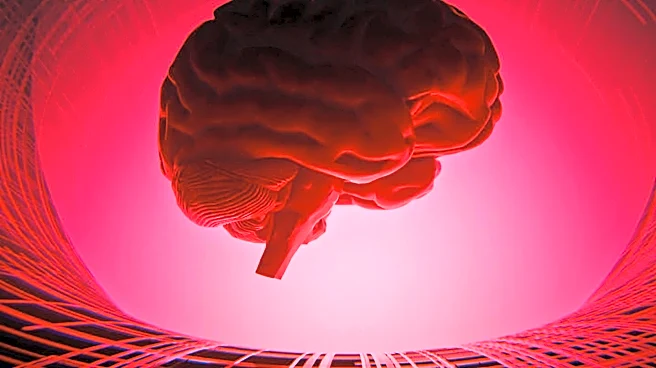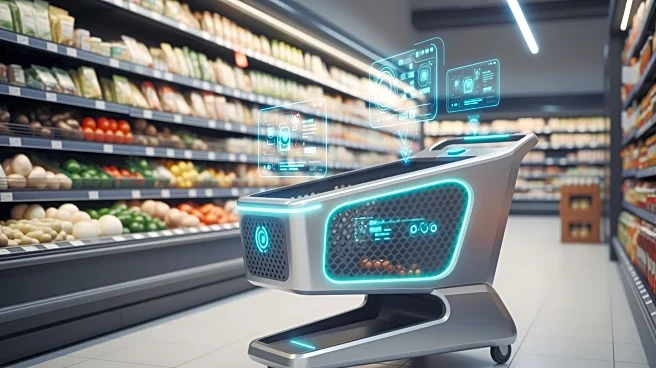What is the story about?
What's Happening?
A recent report by PwC suggests that the U.S. healthcare industry is poised for a significant transformation, driven by AI and digital-first models. The report forecasts that healthcare spending could reach $8.6 trillion by 2035, accounting for over 20% of the U.S. GDP. The shift towards AI-driven, consumer-centric healthcare services is expected to simplify care models, reduce costs, and improve care quality. The report highlights the challenges faced by the current healthcare system, including high costs, fragmented care, and administrative overload. It predicts that by 2035, healthcare will become proactive, automated, and personalized, with AI-enabled intake and in-home care becoming more prevalent.
Why It's Important?
The potential shift in healthcare spending represents a significant opportunity for stakeholders in the industry, including payers, providers, and medtech companies. By adopting AI-driven models, these entities can gain a competitive advantage, reduce clinician burnout, and improve patient outcomes. The report emphasizes the need for healthcare organizations to invest in intelligent platforms and hybrid workforces to adapt to this new landscape. The transformation could lead to more efficient and affordable care, particularly for chronic and geriatric patients, as the population ages. This shift also poses challenges, requiring healthcare leaders to rethink traditional models and embrace innovation.
What's Next?
Healthcare organizations are encouraged to prepare for disruption by building agile teams and investing in new capabilities. The report suggests that payers will need to automate processes and manage population risk more effectively. Providers are expected to pivot to AI-enabled, human-centered models, while medtech companies will focus on intelligent infrastructure and connectivity. The report warns that industry outsiders with capital and vision could disrupt healthcare if traditional players do not adapt quickly. Healthcare leaders must anticipate new entrants and form strategic partnerships to remain competitive.
Beyond the Headlines
The report highlights the ethical and cultural implications of a shift towards AI-driven healthcare. As care becomes more personalized and automated, there may be concerns about data privacy and the role of human judgment in medical decisions. The integration of AI and robotics in healthcare could redefine the patient-provider relationship and raise questions about the accessibility and equity of care. Long-term shifts in healthcare delivery could also impact employment patterns and require new skills and training for healthcare professionals.















